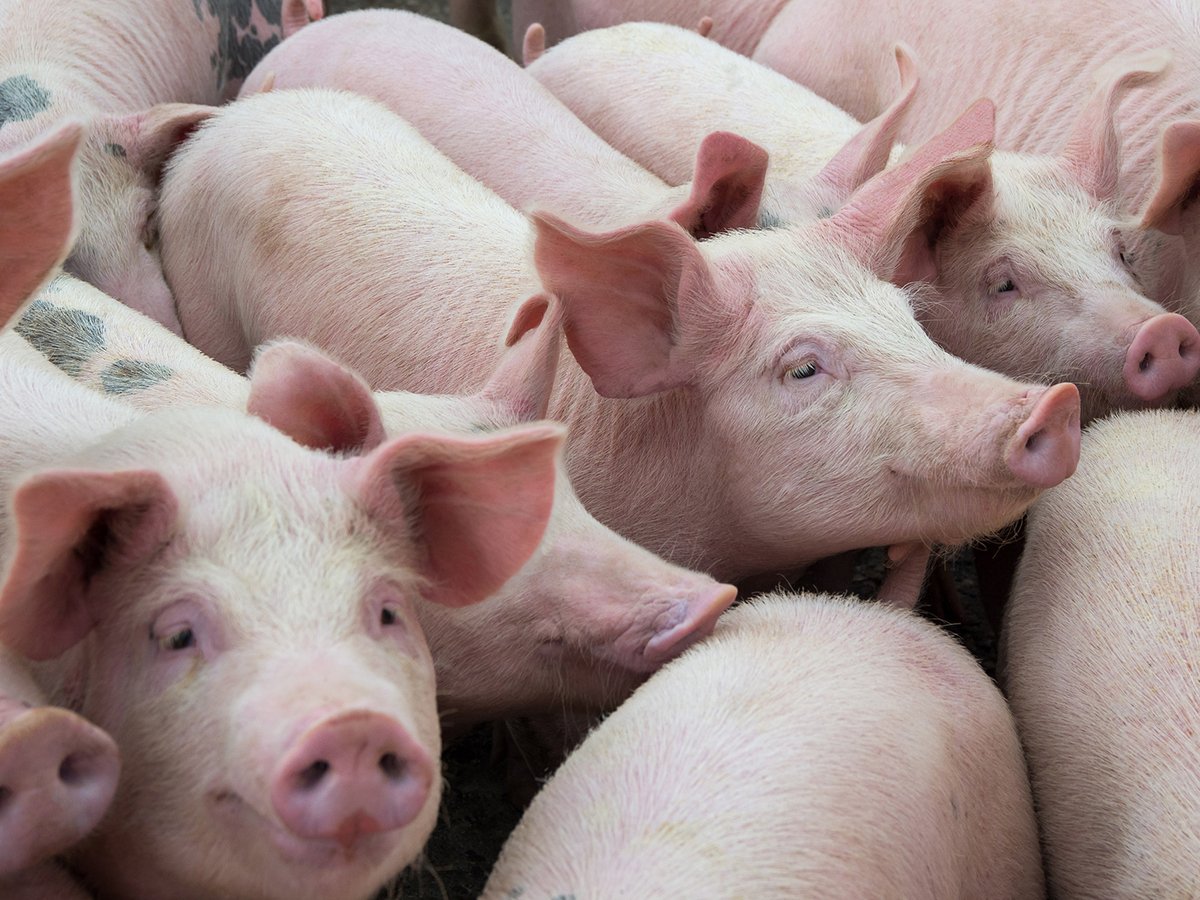Producers often look for the magic bullet when it comes to scours treatments.
Antibiotics are helpful if bacteria are involved, but other treatments are usually more likely to work. For example, if I had only one thing with which to treat scours, it would be electrolytes.
The infectious cause of scours is either a virus or bacteria, but it is really the dehydration and electrolyte imbalances from fluid losses that kills calves.
Fluid and electrolyte replacement is by far the most important treatment for scours.
Read Also

Quebec pork company calls for transparency around gene-edited pigs
Quebec-based pork company duBreton is calling for transparency around meats from gene-edited pigs on concerns that a lack of mandatory labelling will confuse consumers, and dilute certification claims. The organic sector is also calling for labelling rules.
The calf is losing tremendous amounts of water and electrolytes out the back end. Sucking is also diminished if it is really depressed.
A normal 90 to 100 pound calf needs four to five litres of fluids a day for maintenance, or 10 percent of its body weight. A healthy calf takes on more than that to grow and do well.
If a calf is dehydrated, we must help it catch up on fluid intake. The standard recommendation for a scouring calf is one and a half to two litres up to four times daily.
Several good brands of electrolytes are on the market, so see which one your veterinarian recommends. They are balanced, with the main electrolytes being sodium, chloride and potassium, as well as varying amounts of dextrose for energy. High energy electrolytes are especially important if the calf has lost weight or is going to be on electrolytes for an extended period of time.
There is no protein in the electrolytes, so they can’t be the sole source of nutrients for more than two days. Otherwise, weight loss will become a major problem.
Getting the calf back onto milk will be beneficial, even if it is for only every other feeding and the scours may not yet have fully cleared.
Don’t mix milk and electrolytes at the same feeding. The electrolytes dilute the milk, interfering with the clotting mechanism that forms the curds and whey. That aggravates the diarrhea further.
Electrolytes come in individual packages or containers holding up to several gallons of powdered concentrated electrolytes. Follow the instructions closely to get the right dilution and seal the container well between uses.
I don’t recommend homemade electrolytes because a mistake in formulation can cause a calf to become too alkalotic or too acidotic or give them salt poisoning.
Quality electrolytes are especially researched and formulated to provide electrolytes in the right proportions.
The only situation where I break from this routine is when a calf is very acidotic. An acidotic calf will be weak with a drunken stupor. I initially treat with one tablespoon of straight baking soda in a small amount of water. Baking soda or sodium bicarbonate is a strong base that will help neutralize the acid.
The electrolytes will also do this but the calf’s body must convert more bicarbonate and the process takes longer. Follow up with your regular electrolytes after the initial bout of baking soda. Do this only on very acidotic calves.
It’s a good idea to give electrolytes anytime you catch a calf to treat it for scours, even if it is only the one time. Products such as kaopectate and other stool hardeners can be mixed in to help prevent fluid loss out the back end.
They are also mixed in some types of scour boluses, but these bolus tablets drop into the rumen, which isn’t fully functioning yet, and that reduces the effect. As well, the intestine’s ability to absorb is compromised, so it is best to use injectable products, including antibiotics, where possible.
The natural bacterial organisms in the gut may be killed and must be reintroduced if scours lasts for more than a few days. Several good commercial probiotic products are available that provide large numbers of lactobacillus and streptococcus organisms and help digestion get back to normal. Again, they are more important than antibiotics. Be careful not to over-treat with antibiotics because they may wipe out the normal gut flora.
Isolate the calves and their mothers from the calving herd in a place that is warm, dry and preferably stress free.
Use a different esophageal feeder for scouring and newborn calves and disinfect everything between uses.
Farmers can be the biggest spreaders of scours. Change coveralls after treating scouring calves, and dip your boots in disinfectant.
It is probably best to deal with calving cows first before treating scouring calves.
Calves are more than eight to 10 percent dehydrated when their eyes sink into their heads, and oral electrolytes alone will not get them back to normal.
This is where intravenous fluids may be necessary.
Non-steroidal antinflammatories such as banamine and metacam to help with shock toxemia can also be helpful, but they must be prescribed by a veterinarian. The kidneys must be functioning when these products are used, so hydrate your animals well.
These suggestions should provide a much better outcome when treating scours than just relying on antibiotics.
As well, prevention methods such as vaccinating and good biosecurity practices will go a long way to stopping the spread of scours.
















